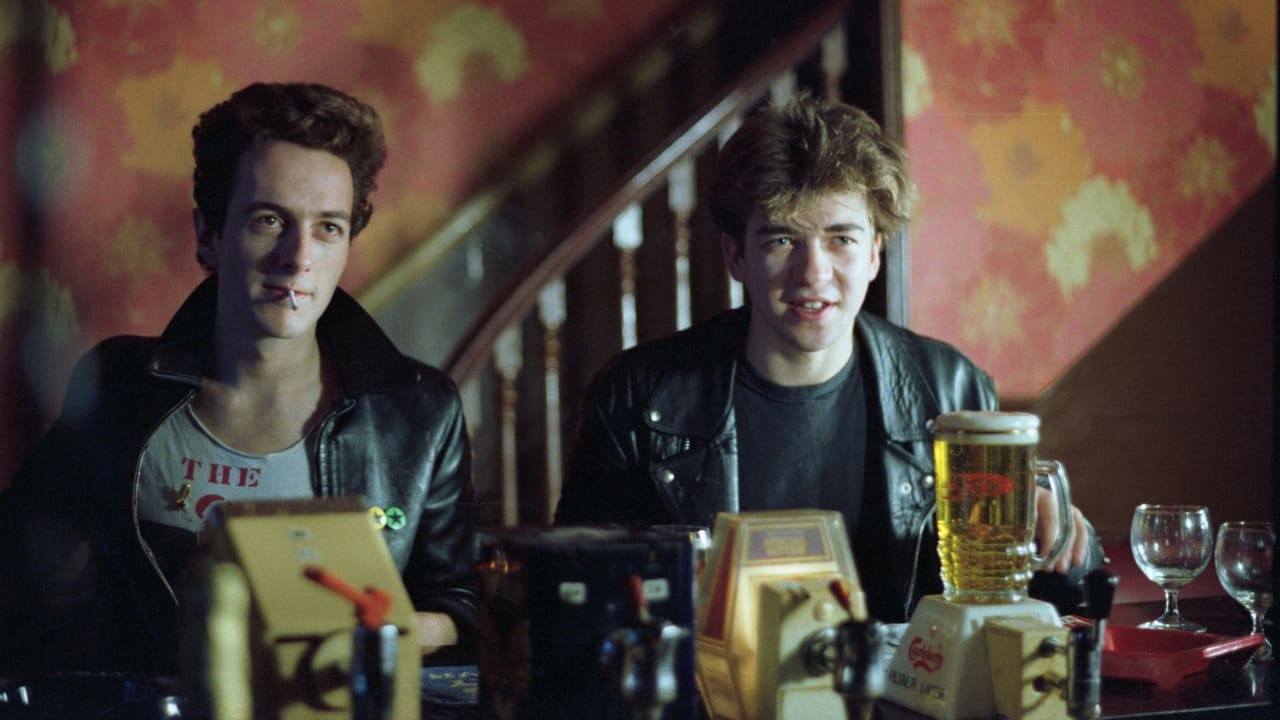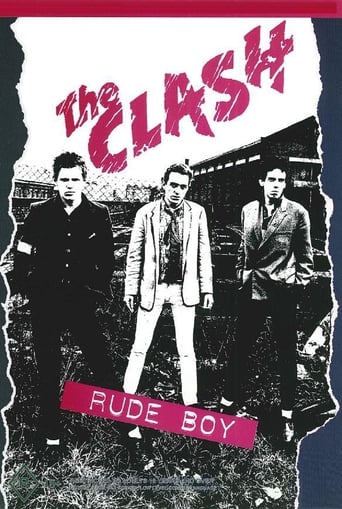Ketrivie
It isn't all that great, actually. Really cheesy and very predicable of how certain scenes are gonna turn play out. However, I guess that's the charm of it all, because I would consider this one of my guilty pleasures.
Doomtomylo
a film so unique, intoxicating and bizarre that it not only demands another viewing, but is also forgivable as a satirical comedy where the jokes eventually take the back seat.
Brendon Jones
It’s fine. It's literally the definition of a fine movie. You’ve seen it before, you know every beat and outcome before the characters even do. Only question is how much escapism you’re looking for.
Cassandra
Story: It's very simple but honestly that is fine.
Chris Bright
...despite copying the musicians in the studio trope, the porn-shop as symbol of capitalism and the black/white subplot. However "Rude Boy" perhaps deserves a little more attention than it seems to have received.As a 'proper movie' it's kind of a washout. Aiming for an improvised cinema-verite feel, it's hamstrung by a fatal lack of tension, having apparently been assembled by people with little grasp of editing, narrative or any kind of cinematic style. Despite this, the concert footage of The Clash is indispensable to anyone with an interest in the era, and shows why they were one of the all-time great rock and roll bands. We have very few 70's punk bands recorded properly on film as opposed to video and the difference in quality is striking. Also, Joe Strummer's death is still quite recent as I write and seeing him here in his prime is poignant in the extreme.In general there are very few film documents of punk. We have Jarman's "Jubilee" which was more of a neo-Elizabethan fantasia, "The Great Rock and Roll Swindle" with its McClarenite rewriting of history and come-lately nonsense like "Breaking Glass". "Rude Boy" at least doesn't fall into any narrative clichés (if only by barely having a plot) and by its very lack of creative flair may succeed best in giving a picture of the time. For example, unlike the myth-making of the likes of "Sid and Nancy", this shows punk gigs as they actually were - largely populated by lads with feather-cuts and tank tops. By concentrating on hanger-on Gange instead of the band itself, the filmmakers turn the story into one of the relationship between the band and its fan-base - pointed up by having Strummer sing "All The Young Punks" right through in the studio without the backing track to distract us from the lyric. The commentator who said this did not give a true picture of the politics of the time is surely wrong. I was there and it seems pretty accurate to me. We see the resurgent National Front, the Anti-Nazi League, the bullishness and racism of the police at the time (which would shortly lead to the Brixton riots) and the rise of Thatcherism out of the bankrupt Butskellite consensus. Ray Gange's character in the film seems intended to represent the British white working class at the time - confused, politically disengaged and borderline racist, the attitudes which led to the Thatcher victory we see at the end of the film. The left, variously represented by the SWP (bureaucratic) and Strummer (by turns tokenistic and diffident) fails to capture Gange's imagination and it is the right who seize on the desire for change and turn it to their own advantage.Rude Boy is a strange curate's egg, then. There may have been a really good film struggling to get out of this morass, but we'll never know. The special edition DVD has a "Just Play the Clash" function which lets you view only the concert footage and I suspect this will get a lot of use.Rating? 3/10 for the story, 10/10 for the music.
Joseph P. Ulibas
Rude Boy (1980) follows the life of a youth who dreams about working for his favorite band THE CLASH. The band THE CLASH co-star in this picture and some of their live performances is caught on film. This movie was made before they made it big across the pond. The band is shown working on their second album GIVE THE ENOUGH ROPE. A colleague of their's John Lydon once said that the Clash didn't know how to pace themselves, they would be tired after the first four or five songs. Well, he was right. Some of the concert footage shows, the band appeared to be sluggish and tired in some of their performances. I heard that the band wasn't happy with the way they were portrayed and neither was the young man who played the wannabe roadie. I found the band to be very interesting and I became a Joe Strummer fan after I saw this movie. The film-makers also capture the turmoil that was occurring on the streets of London during this time. Their was a lot of rioting and protesting. They also capture the collapse of the Labour Party and the rise of the Conservatives. Another one to seal in a time capsule. Interesting, recommended for Clash fans.
jimi99
Despite all the negative commentary about this hodge-podge docudrama, it really is a fine testament to the spirit if not the letter of the punkers and the politics of the 70's. With the recent death of the talented and idealistic Joe Strummer, it is the film's insight into his talent and personality, his dynamic stage presence, and his role as a driving force behind the anti-institution known as the Clash that makes this film an important cultural and musical document. I also think it's very entertaining outside the musical numbers, if appropriately depressing.
Koli
It is genuinely difficult to work out where the drama ends and the documentary takes over. When I sat down to watch it I had no idea whether Ray, the fan who becomes a roadie, was an actor or the genuine article. The stilted nature of some of the conversations, and self-conscious grins accompanying them, indicate contrivance, but it's as if real conversations are being reproduced for the camera. Only afterwards did I discover that Ray Gange was acting and had written the script.The film provides an insight into the world of punk rock in the late seventies. The Clash were more musically adept, and more politically aware, than most punk bands of the era, but the rebellious swaggers and the anger were typical enough. The concert footage is entertaining, and only marred by the fact that much is filmed from the back of the stage. It features much of the band's best material, from White Riot to Tommy Gun to London's Burning.
This is a nostalgic treat for old punk rockers, and a useful introduction for those who, in the late 70s, were too young or allowed punk rock to pass them by.

